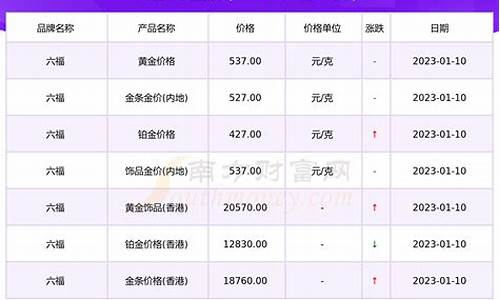应对低油价有哪些建议_能挽救低油价吗英语
1.高一英语选择题
2.关于大学英语句子
3.急需商务英语文章 带翻译的~
4.英语短文求翻译

油价52美元在4月2日(新华)股票飙升使美元软弱,汹涌奔腾上向上飞升--原油回来在52美国美元,一星期四桶右手击球员的左后方场地经过一在股票市场和一减弱的美元中强劲的上升支持的之上跳. 亮,甜美未加工对于五月投递获得4.25美元或者几乎百分之9在54.64美元把一只桶传给商人的交流.油价一直在紧密随着股本的波动到来.当美国财政会计标准板放松记号-向-市场规定和G20领袖在伦敦同意增强全球性经济复苏时,星期四随着所有的主修课召集华尔街把上升的百分之以上百分之2编入索引. 投资者基本上对负的报告失业数据和天然气盘货应付一个创纪录的高点无所谓.美国劳动部门说在超过26年中失业水平是最高和美国能源Department的能源信息管理报告天然气inventories支持住在朝派地面下层存储在朝派较低48州are32.1百分之一高与相比一年前和百分之22.4在上方的五-年平均为. 在伦敦,布伦特未加工的对于五月投递上升4.31美元,在52.75美元把一只桶传给冰未来中交换.
高一英语选择题
能源危机也许是这个世纪最热门的话题了,那有多少人知道呢。
资料显示,在技术与成本的限制下,预估世界石油蕴藏量只可再开四十年,可看出现在全世界依赖最深的主要能源-石油及天然气,在二十一世纪的前半,就将日趋枯竭。目前全球因为石油、天然气等能源生产设备过度投资,造成市场供过於求,因而油价尚相当稳定,但随著诸多产地蕴藏量降低甚至枯竭,全球将面临能源价格剧烈波动,将冲击全球经济发展。
所以,面对日益恶化的危机,我们是不是该做些什么呢。
The energy crisis may be the century the hottest topic, that how many people know it.
Data shows, in technology and cost constraints, the estimated world petroleum reserves can only then mining forty years, we can see the world now rely on the deepest main energy - oil and natural gas, in the 21st century in the first half of the increasingly depleted, it will. Current global because oil, gas energy such as excessive investment, production equipment, thus causing a glut on the market price is still quite stable, but with reduced many origin reserves even dry, the global energy prices will face the volatility, will impact global economic development.
Therefore, in the face of worsening crisis, whether we should do what?
关于大学英语句子
正确答案如下:
1. 选B.
分析: 用来修饰比较级better的词是far, quite不可以用来修饰比较级.
全句的意思是: 经过几个月的研究后, 我们现在对H1N1流感有了更加好的理解.
2. 选B.
分析: 根据句意"本周油价降至近14个月以来的最低水平, ...是由于产量过剩.", 这里就分析得出, 导致这种情况出现的明显的原因是..., 所以得用"obviously", 表示"明显地".
希望可以帮助到你理解吧.
加油哦...
急需商务英语文章 带翻译的~
很多人总以为长了大学选了专业就不用学英语。其实不是,基本所有的专业都会有英语课。而且就算不用考四六级也要ab级,所有我们一定要时时刻刻多积累一些单词和句子。接下来我在这里给大家带来关于大学英语句子,希望对你有所帮助!
1.Judge not from earances 人不可貌相,海不可斗量。
2.Don't give up and don't give in 不要放弃,不要言败!
3.Failure is the mother of success 失败乃成功之母。
4.There is no royal road to learning 求知无坦途。
5.Where there is a will, there is a way 有志者事竟成。
6.Victory belongs to the most persevering 坚持必将成功。
7.Adversity is the midwife of genius 逆境造就天才。
8.Bitter pills may he wholesome effects 良药苦口利于病。
9.Zero in your target,and go for it 从零开始,勇往直前!
10.Give more than you planned to 多多给予,不必计较。
11.I'm an office worker 我是上班族。
12.I work for the 我在机关做事。
13.I'm hy to meet you 很高兴见到你。
14.I like your sense of humour 我喜欢你的幽默感。
15.I'm glad to see you again 很高兴再次见到你。
16.I'll call you 我会打电话给你。
17.I feel like sleeping/ taking a walk 我想睡/散步。
18.I want something to eat 我想吃点东西。
19.I need your help 我需要你的帮助。
20.I would like to talk to you for a minute 我想和你谈一下。
21.I he a lot of problems 我有很多问题。
22.I hope our dreams come true 我希望我们的梦想成真。
23.I'm looking forward to seeing you 我期望见到你。
24.I'm supposed to go on a diet / get a raise 我应该节食/涨工资。
25.I heard that you're getting married Congratulations听说你要结婚了,恭喜!
26.I see what your mean 我了解你的意思。
27.I can't do this 我不能这么做。
28.Let me explain why I was late 让我解释迟到的理由。
29.Let's he a beer or something 咱们喝点啤酒什么的。
30.Where is your office? 你们的办公室在哪?
31.What is your plan? 你的是什么?
32.When is the store closing? 这家店什么时候结束营业?
33.Are you sure you can come by at nine? 你肯定你九点能来吗?
34.Am I allowed to stay out past ? 我可以十点过后再回家吗?
35.The meeting was scheduled for two hours, but it is now over yet 会议原定了两个小时,不过现在还没有结束。
36.Tom's birthday is this week 汤姆的生日就在这个星期。
37.Would you care to see it/ sit down for a while? 你要不要看/坐一会呢?
38.Can you cover for me on Friday/help me/ tell me how to get there? 星期五能不能请你替我个班/你能帮我吗/你能告诉我到那里怎么走吗?
39.Could you do me a big for? 能否请你帮我个忙?
40.He is crazy about Crazy English 他对疯狂英语很着迷。
41.Can you imagine how much he paid for that car? 你能想象他买那车花了多少钱吗?
42.Can you believe that I bought a TV for $?
43.Did you know he was hing an affair/cheating on his wife? 你知道他有外遇了吗?/欺骗他的妻子吗?
44.Did you hear about the new project? 你知道那个新项目吗?
45.Do you realize that all of these shirts are half off? 你知道这些衬衫都卖半价了吗?
46.Are you mind if I take tomorrow off? 你介意我明天请吗?
47.I enjoy working with you very much 我很喜欢和你一起工作。
48.Did you know that Stone ended up marrying his secretary? 你知道吗?斯通最终和他的秘书结婚了。
49.Let's get together for lunch 让我们一起吃顿午餐吧。
50.How did you do on your test? 你这次考试的结果如何?
英语短文求翻译
Could recession spread from America?
萧条会从美国蔓延开来吗?
“DECOUPLING” is the source of a great deal of controversy. Economists argue about whether or not emerging economies will follow America into recession. The most pessimistic claim that as economies he become more intertwined through trade and finance, this should make business cycles more synchronised, not less. The slide in emerging stock markets on Wall Street’s coat-tails ears to endorse their view. Yet recent data suggest decoupling is no myth. Indeed, it may yet se the world economy.
“脱钩“是当前一个引发了相当多争议的话题。经济学家们正在就新兴经济体是否会步美国的后尘走上衰退之路辩论不休。其中最悲观的看法是随着经济体之间通过贸易与金融的结合日趋紧密,全球经济波动的周期将更趋向于同步。新兴股市紧随华尔街大幅下跌似乎印证了这一观点。但是近期的数据表明脱钩一说并非空穴来风,事实上这一进程还有望在将来挽救世界经济。
Decoupling does not mean that an American recession will he no impact on developing countries. That would be daft. The point is that their GDP-growth rates will slow by much less than in previous American downturns. Most enjoyed strong growth during the fourth quarter of last year, and some speeded up, even as America’s economy ground to a virtual halt and its non-oil imports fell.
如果说脱钩意味着发生在美国的萧条不会令发展中国家遭受池鱼之殃,这完全是无稽之谈。关键在于这些国家的GDP增幅受到的影响较之以往会小得多。它们之中的绝大多数去年第四季度的增长势头强劲,有一些甚至在加速增长,尽管在此同时美国经济几乎完全停滞不前,除原油以外的进口全面下降。
One reason is that while exports to America he stumbled, those to other emerging economies he surged (see chart 1). China’s growth in exports to America slowed to only 5% (in dollar terms) in the year to January, but exports to Brazil, India and Russia were up by more than 60%, and those to oil exporters by 45%. Half of China’s exports now go to other emerging economies. Likewise, South Korea's exports to the United States tumbled by 20% in the year to February, but its total exports rose by 20%, thanks to trade with other developing nations.
原因之一就是在对美出口步伐放缓的同时,这些国家对其他新兴经济体的出口有了长足增长.今年一月份中国对美出口的增幅仅为5%(以美元计算),但对巴西、印度和俄罗斯的出口额增加了60%以上,而对石油输出国的出口增长为45%。现在对其他新兴经济体的出口占到了中国出口总额的的半壁江山。同样,今年一到二月韩国对美出口下降了20%,但其出口总量反而增加了20%,这全要拜与其他发展中国家贸易之赐。
A second supporting factor is that in many emerging markets domestic consumption and investment quickened during 2007. Their consumer spending rose almost three times as fast as in the developed world. Investment seems to be holding up even better: according to HSBC real capital spending rose by a staggering 17% in emerging economies last year, compared with only 1.2% in rich economies.
第二个因素就是很多新兴市场的国内消费与投资在2007年加速了。这些国家消费支出的上扬速度几乎是发达国家的三倍,投资方面的表现则更为突出:据汇丰银行统计,去年新兴经济体实际资本支出增长率达到了惊人的17%,而在发达国家这一数字仅为1.2% 。
Sceptics argue that much of this investment, especially in China, is in the export sector and so will collapse as sales to America weaken. But less than 15% of China’s investment is linked to exports. Over half is in infrastructure and property. It is not just China that is building power plants, roads and railways; a large chunk of the Gulf’spetrodollars are also being spent on gleaming skyscrapers and new airports. Mexico, Brazil and Russia he also launched big infrastructure projects that will take years to complete.
对此抱有怀疑态度的人会声称这些投资中的大部分,尤其是中国的投资,集中在出口领域,结果会随着对美出口的减退化为乌有。但是实际上中国的投资中与出口相关联的不到15%。过半的资金都投在了基建与地产上面。而且不是只有中国在兴建电站、公路和铁路;海湾国家的石油美元也有很大一部分变成了光鲜的摩天楼和崭新的机场。墨西哥、巴西和俄罗斯同样上马了为期数年的大型基础建设项目。
The four biggest emerging economies, which accounted for two-fifths of global GDP growth last year, are the least dependent on the United States: exports to America account for just 8% of China’s GDP, 4% of India’s, 3% of Brazil’s and 1% of Russia’s. Over 95% of China’s growth of 11.2% in the year to the fourth quarter came from domestic demand. China’s growth is widely expected to slow this year but to a still boisterous 9-10%.
新兴经济体中的四强贡献了去年全球GDP增长的五分之二,而它们正是同类之中对美国依赖最小的:对美出口只占中国GDP的8%,印度GDP的3%,巴西GDP的3%和俄罗斯GDP的1%。中国去年到第四季度为止所取得的11.2%的增长中有95%以上来自于内需。普遍预期中国今年的增长势头会放慢,但仍能达到堪称活跃的9-10%。
American downturns he often caused the prices of oil and other raw materials to slump, but this time China’s surging demand is propping up prices and fuelling booms in Brazil, Russia and the Middle East. Brazil’s exports jumped by 26% in the year to February. In turn, if prices stay strong, so will China’s exports to commodity-producing countries. A sharp slowdown in China would hurt them more than an American recession will.
美国的经济衰退过去通常会造成原油和其他原材料价格低迷,但如今来自中国的飞速增加的需求正在拉高油价,助长了巴西、俄罗斯和中东的经济繁荣。巴西今年一至二月的出口猛增了26%。相应的,如果原料价格居高不下,中国对原材料生产国的强劲出口势头也就能保持下来。对这些国家来说,比起美国的萧条来,中国的经济急刹车造成的伤害还要严重一些。
The popular argument that business cycles should become more synchronised in a globalised world rests on an out-dated impression that poor countries mainly export to rich ones. Instead, emerging economies’ trade with each other has risen faster and now accounts for over half of their total exports. Emerging markets as a group now export more to China than to the United States (see chart 2).
许多人做出全球化的世界里的经济周期性波动会趋向同步这一判断,其实是基于一个过时的印象,即穷国的出口主要流向富国。实际上新兴经济体之间的贸易增长更为迅速,现在已经达到了它们总出口额的一半以上。如果把新兴市场视为一个整体,那么它对中国的出口已经超过了对美国的出口.
Some contend that this mainly reflects imports of intermediate goods into China for assembly; the finished goods are then exported to America and so will be hurt by slower growth. There is some truth to this, although Asian exports to China are increasingly driven by China’s own domestic demand.
有人会辩解说这主要是中国进口中间产品用于组装的体现,最后的制成品还是要销往美国,从而会受不景气的市场拖累。这在某种程度上是事实,不过亚洲的对华出口正日益为中国的内需所驱动。
Another reason why globalisation and decoupling can co-exist is that opening up economies has not only boosted poor countries’ trade, it has also spurred their productivity growth and hence domestic incomes and spending.
全球化与脱钩进程能并行不悖的另一个原因,就是经济上的开放在繁荣穷国的贸易的同时也促使他们提高劳动生产率,于是国民收入与消费便随之水涨船高。
A severe recession in America could still he a nasty impact on the developing world if commodity prices collapsed and if it caused stockmarkets to fall more steeply, depressing global consumer and business confidence. A sharper fall in the dollar could also further squeeze emerging economies’ exports.
当然,如果美国的严重衰退引发原材料价格崩盘,或是带动股市进一步暴跌打击全球消费者与投资人的信心,发展中国家肯定会损失惨重。美元加速贬值也会导致新兴经济体的出口进一步缩水。
But for perhaps the first time ever, developing countries would be able to make full use of monetary and fiscal policy to cushion their economies. In the past, when they were net foreign borrowers, capital inflows tended to dry up during global downturns as foreign investors shunned risky assets. This forced s to raise interest rates and tighten fiscal policy. Economies with large external deficits are still vulnerable, but most emerging economies now he a current-account surplus and large foreign reserves; many he a budget surplus or are close to balance, leing ample room for a fiscal stimulus if necessary.
但是,发展中国家将会得以充分利用货币与财政政策呵护他们的经济,这很可能是前所未有的。过去它们是净债务国,在全球衰退来临时外国投资者对风险资产回避会造成这些国家的资金来源枯竭,迫使它们的提高利率并实行紧缩财政政策。现在那些背负高额对外赤字的经济体在这方面仍然很脆弱,但是大部分新兴经济体目前都拥有经常账户盈余和巨额外汇储备;其中不少还有预算结余,或者至少收支基本相抵,这样就为在必要情况下取财政激励政策留下了足够的空间。
Perhaps the best support for decoupling comes from America itself. Fourth-quarter profits of big companies, such as Coca-Cola, IBM and DuPont, were better than expected as strong sales growth in emerging markets offset a sharp slowdown at home. Bits of American business are rising above their own economy. With luck, the world economy can rise above America’s.
也许支持脱钩进程最好的实例来自美国国内。像可口可乐、IBM和杜邦这样的大公司第四季度的利润好于预期,就是以在新兴市场良好的销售势头弥补了本土市场的疲软。美国经济中的一部分已经走到了其他部分的前面。如果一切顺利的话,世界经济也将同样走到美国经济的前面。
难道经济衰退的苦难岁月又要回来了吗?自OPEC在三月份同意消减原油供应以来,原油价格每桶已暴涨到约26美元,而去年12月还不到10美元一桶。将近三倍的石油价格不得不让人回忆起73年石油危机导致石油价格暴涨四倍的可怕经历,还有79-80年间的石油价格也曾暴涨成如今的这般模样。两场少见的石油危机都可归结于两位数的通货膨胀和全球性的经济衰退。而这一次,那些警告人们厄运当头的头版头条的新闻都跑到哪儿去了呢?
本周另一个推动石油价格暴涨的帮凶就是伊拉克暂时禁止了本国石油的出口业务。与此同时,受正处抗寒关头的北方诸国拉动经济增长的因素影响,也有可能于短期内将石油价格哄抬得更高。
不过也有不少利好因素,可保眼下的这场经济危机不至于惨烈到70年代的那般光景。因为大多数国家现在的汽油价格早已不像70年代那样,其原油价格对汽油价格的影响力已经降至一个较小的范围。欧洲的汽油税就占其零售价格的八成,所以,即使原油价格出现再大的波动,也不会像从前一样“应声而涨”了。
富裕的国家对于石油的依赖程度也较之以往更少,对石油价格的波动也没有那么“在意”。而能源保护的相关政策,促使他们转向其它燃料并降低了对石油的依赖性,也大大降低了石油的重要性。能耗型企业已经降低其消耗量,软件、咨询和移动电话行业对石油的消耗又远小于钢铁和汽车行业。这些富裕国家GDP中的每一美元对石油的依赖程度较之73年约下降了一半。OECD在他的一份最新经济展望中分析石油价格时就如是说道:石油的全年均价约22美元每桶,与98年的每桶13美元的相比,的确增加了进口的总额度,然就富裕国家的GDP而言,这点增量仅仅只占到了0.25-0.5%;而且,不足全年总收入的四分之一,并低于74年、80年的水平。而另一方面,不少国家依赖于进口石油,其重工业业已转向更为密集的产业模式,此种做法可能会进一步地受到油价暴涨的挤压。
一个的确没有必要为了石油涨价而茶饭不思,也与70年代的油价暴涨有着本质性区别的重要理由就是恰好没有出现一般性商品价格通胀和全球性过剩需求的恶劣局面,因为绝大多数国家和地区才刚刚脱离经济衰退的困境。从《经济学家》报上公布的商品价格指数就能清楚地看到,从一年前直到今日,居然丝毫没有变动。
声明:本站所有文章资源内容,如无特殊说明或标注,均为采集网络资源。如若本站内容侵犯了原著者的合法权益,可联系本站删除。












